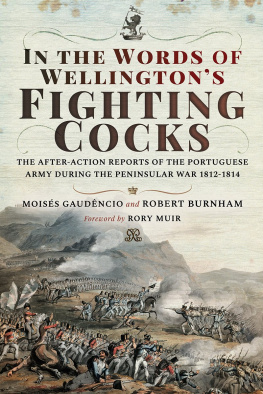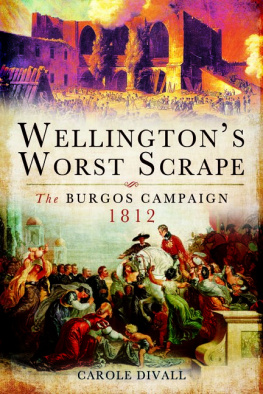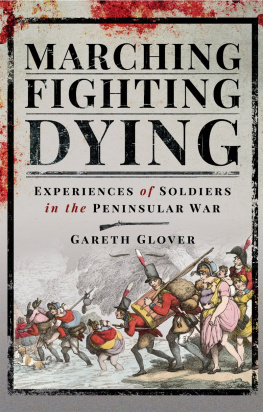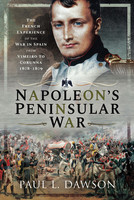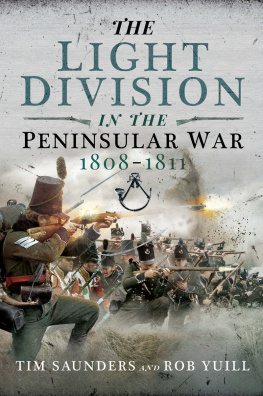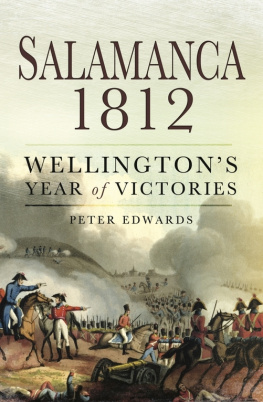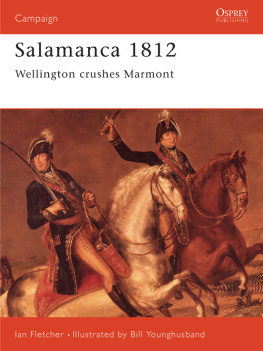Pagebreaks of the print version

In the Words of Wellingtons Fighting Cocks
In the Words of Wellingtons Fighting Cocks
The After-action Reports of the Portuguese Army during the Peninsular War 18121814
Moiss Gaudncio and Robert Burnham
Foreword by
Rory Muir
First published in Great Britain in 2021 by
Pen & Sword Military
An imprint of
Pen & Sword Books Ltd
Yorkshire Philadelphia
Copyright Moiss Gaudncio and Robert Burnham, 2021
ISBN 978 1 52676 168 2
eISBN 978 1 52676 169 9
The right of Moiss Gaudncio and Robert Burnham to be identified as Authors of this work has been asserted by them in accordance with the Copyright, Designs and Patents Act 1988.
A CIP catalogue record for this book is available from the British Library.
All rights reserved. No part of this book may be reproduced or transmitted in any form or by any means, electronic or mechanical including photocopying, recording or by any information storage and retrieval system, without permission from the Publisher in writing.
Pen & Sword Books Limited incorporates the imprints of Atlas, Archaeology, Aviation, Discovery, Family History, Fiction, History, Maritime, Military, Military Classics, Politics, Select, Transport, True Crime, Air World, Frontline Publishing, Leo Cooper, Remember When, Seaforth Publishing, The Praetorian Press, Wharncliffe Local History, Wharncliffe Transport, Wharncliffe True Crime and White Owl.
For a complete list of Pen & Sword titles please contact
PEN & SWORD BOOKS LIMITED
47 Church Street, Barnsley, South Yorkshire, S70 2AS, England
E-mail:
Website: www.pen-and-sword.co.uk
Or
PEN AND SWORD BOOKS
1950 Lawrence Rd, Havertown, PA 19083, USA
E-mail: Uspen-and-sword@casematepublishers.com
Website: www.penandswordbooks.com
Foreword
Every serious historian who has written about Wellingtons campaigns in the Peninsula has acknowledged the vital role played by the Portuguese Army which, from 1810 onwards, made up a crucial part generally about one third of his forces. But it has been difficult to go much beyond this, and to provide detail about the Portuguese role in particular operations. There are abundant sources for the British army, ranging from Wellingtons own voluminous Dispatches to the letters, diaries and memoirs of hundreds of officers and men who served under him. However, there is no comparable wealth of material for the Portuguese side of the story: a few memoirs by British officers serving in the Portuguese Army; three doctoral theses written in the 1970s; and, more recently, an excellent biography of Marshal Beresford, the British commander of the Portuguese Army; but not much else. This makes it almost impossible to give due credit to the Portuguese for their contribution to Wellingtons victories, even when a historian is actively trying to do so. It is as if two actors dominated a film, but one had all the good lines and the other barely spoke.
It is therefore with immense pleasure that I welcome the publication of this volume of official reports made by Portuguese and British officers serving in the Portuguese Army, written soon after each action and describing the role their unit had played, together with the return of the casualties it suffered. This is a primary source of great importance which is a major contribution to increasing our knowledge of the role played by the Portuguese Army and giving a voice to its officers. Like all primary sources, these reports need to be read with care: officers reputations were at stake and they naturally tried to present events in the best possible light, although as they were reporting to senior officers who had often been on the spot and had themselves seen what had happened, their scope for creatively rewriting the course of events was limited, and the alert reader can deduce much that is only implied.
The reports begin in the middle of 1812 with the Salamanca campaign, and, while it is unfortunate that the reports on the earlier campaigns are not available, this does at least have the advantage of drawing attention to the Portuguese role in the final three years of the war, which has previously received even less attention than their role in the campaigns of 1810 and 1811. Yet it was in these campaigns that the Portuguese Army reached its highest state of efficiency. After the battle of Vitoria, Sir Thomas Picton, who had been extremely sceptical about the Portuguese troops when he first arrived in the Peninsula, wrote home that The Portuguese attached to the Division fully equalled the English during the whole day, and showed an Example of Steadiness and gallantry that equals them to any Troops in the World. He then underlined the sentence to give it greater emphasis. A couple of months later the armys Judge-Advocate wrote that, Nothing can look in a higher order than the Portuguese troops. They are cleaner than our men; or look so, at least. They are better clothed now by far, as they have taken the best care of their clothes: they are much gayer, and have an air, and a je ne sais quoi, particularly in the Caadores both the officers and the private men, quite new in a Portuguese. And Wellington himself, in the midst of the difficult fighting in the Pyrenees, famously described his Portuguese troops as the fighting cocks of the army.
In publishing these reports Moiss Gaudncio and Robert Burnham have helped to fill one of the most grievous gaps in the sources for the Peninsular War and have taken an important step to ensuring that Wellingtons fighting cocks receive the credit that they deserve.
Rory Muir
Acknowledgements
Moiss Gaudncio . For almost two decades, in an extraordinary work, the Arquivo Histrico Militar scanned and made available digitally to the public thousands of documents related to Portuguese military history. Without it, this book would not be possible, so I would like to thank the successive directors and all the staff of the archive.
I also wish to thank everyone who helped me to develop my enthusiasm for the study of Portuguese military history at the time of the Napoleonic Wars. Among them, I would like to mention Joo Torres Centeno, Jorge Quinta Nova, Anthony Gray, and my fellow co-author, Robert Burnham, who for many years managed the Napoleon Series site and its discussion forum, where I fed myself with the immense knowledge available there.
Last but not least I want to thank my wife Glria for the help she gave me but specially for her patience and understanding.
Robert Burnham . Once again, I would like to thank my friends who are always willing to answer questions on the British Army: Rory Muir, Ron McGuigan, Michael Crumplin, and Steve Brown. Rory was one of the earliest supporters of this book and graciously agreed to write its Foreword. In the twenty-five years that I have worked with Ron, I have only ever stumped him once with one of my queries. I thought I might challenge him this time with some of the obscure British officers who served in the Portuguese Army, but once again he quickly answered my questions. Michael, who is my go-to source on the British medical system of the Napoleonic Wars, provided most of the information on the British medical personnel who served in the Portuguese Army. I can always count on Steve to point me in the right direction when I am stuck. This book also saw two new members added to the team: Marcus de la Poer Beresford, who freely shared his extensive knowledge of Marshal Beresford and the British officers in the Portuguese Army, and Lucy Bamford, whose knowledge of art held by different museums was instrumental in tracking down portraits. I also would like to thank the various individuals, libraries, and museums that provided portraits: Mark Thompson, Nick Haynes, Nick Lipscombe, Garry Willis, Suzie Pack-Beresford, Heritage Mississauga, Anne S.K. Brown Collection, State Library of Victoria, Australia, the Royal Military Academy Sandhurst, and the Regimental Museum of The Royal Welsh. Finally, there is my wife Denah, who, as always, has patiently listened to my anecdotes about men who have been lost to history and gave me wordsmithing advice when needed. I know she is ready to have the dining room table back!

